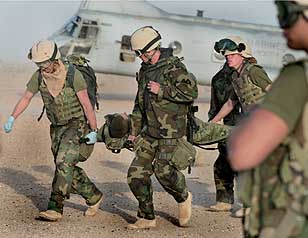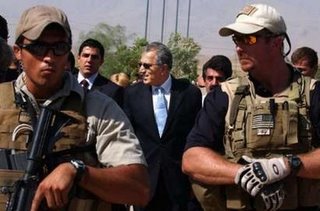
Clinton Says ‘I’m In to Win’ 2008 Race
By PATRICK HEALY
Published: January 20, 2007
“I’m in,” she says in a statement on her new campaign Web site. “And I’m in to win.”
Mrs. Clinton, 59, called for “bold but practical changes” in foreign, domestic, and national security policy and said that she would focus on finding “a right end” to the Iraq war, expanding health insurance, pursuing greater energy independence and strengthening Social Security and Medicare.
In her statement, Mrs. Clinton also squarely confronted an issue that concerns many Democrats: Whether she can, in fact, win the presidency. Some voters still associate her most with the controversies of the Clinton administration, and Republicans have long attacked and caricatured her, and plan to brand her as indecisive on Iraq.
“I have never been afraid to stand up for what I believe in or to face down the Republican machine,” Mrs. Clinton said on the Web site. “After nearly $70 million spent against my campaigns in New York and two landslide wins, I can say I know how Washington Republicans think, how they operate, and how to beat them.”
If successful, Mrs. Clinton would be the first female nominee of a major American political party, and she would become the first spouse of a former president to seek a return to the White House. President Bill Clinton left office in 2000 after two terms marked by robust economic expansion and a series of investigation into his personal life and the Clintons’ business dealings.
The successes and shadows of those years will likely loom over Mrs. Clinton, who was both a hands-on adviser and a divisive presence in his administration.
Yet Mrs. Clinton has become a major political figure in her own right: She is broadly popular with women, African-Americans, and other core groups in the Democratic Party, and she is one of the party’s best fundraisers and most sought-after speakers. She is admired by many independents and Republicans in New York, winning re-election last year by 30 points. While she is not associated with any major piece of legislation, she is widely regarded as an effective, thoughtful lawmaker who has built bipartisan ties
Let's see.
Only 72 percent of Americans will vote for a woman.
Hilary Clinton is the most detested politician outside of the Bush Administration.
So detested, her name is a punchline in most of America
She can't campaign for Dems outside the Far West and Northeast.
She has zero legislative accomplishments.
She supported the Iraq war
She has no national security experience
She has no defining political philosophy.
I think the Clinton campaign is a house of cards. When she is pressed hard and expected to actually take controversal stands, she is going to falter. She is a cautious politician, who despite all of her experiences, does not gauge the antipathy she faces on the left and the middle.
There isn't a chance in hell I would support Clinton, or to be honest, Obama, in a primary at this point. Neither has done more than talk and that will not cut it when we have to salvage our reputation and foreign policy.









